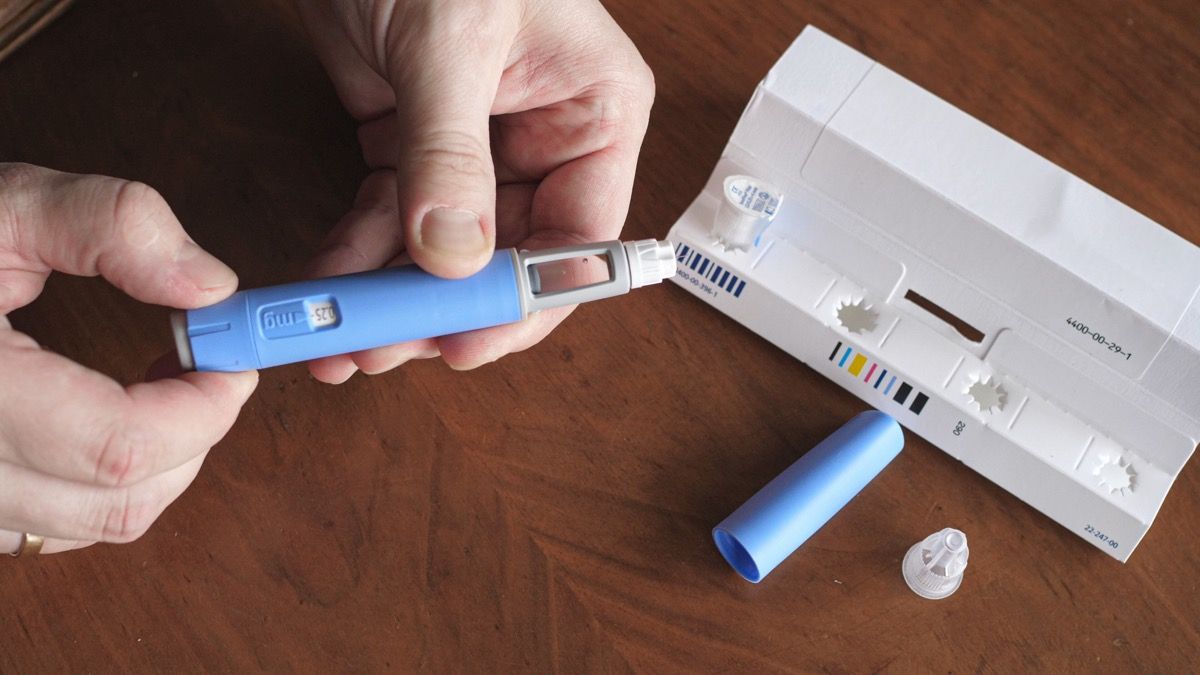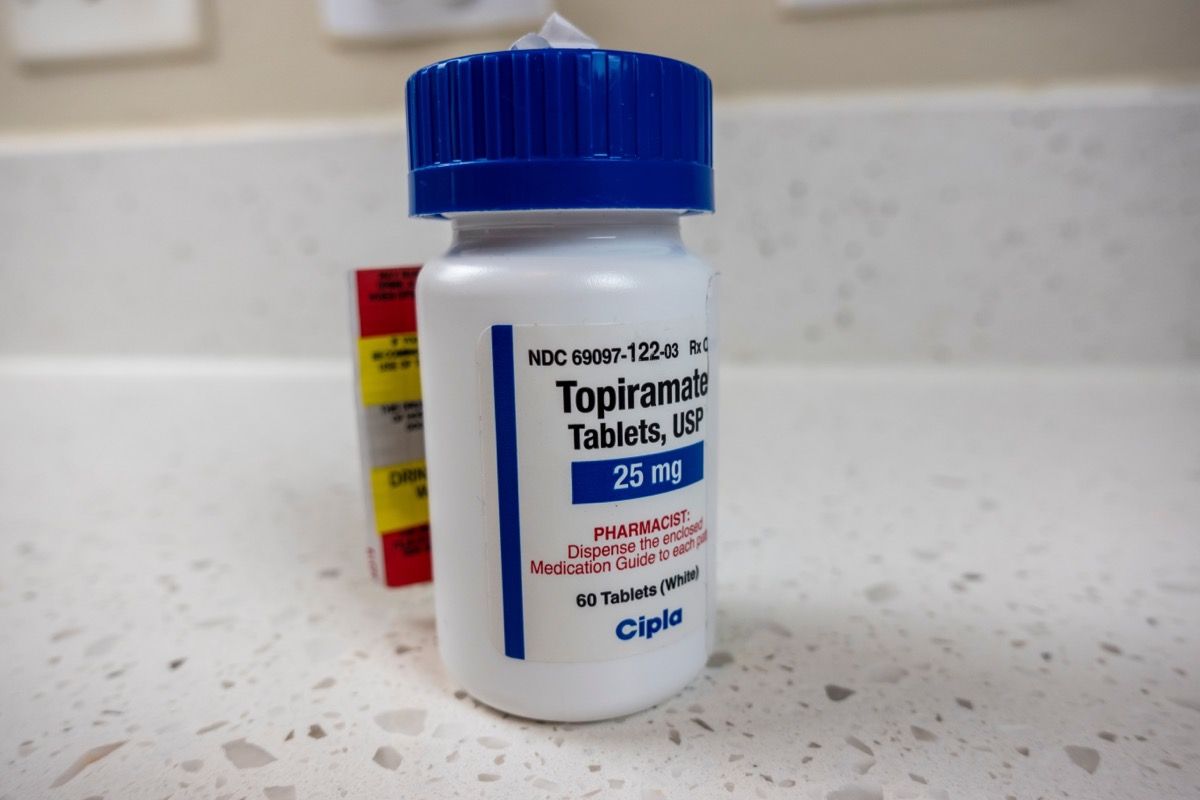Doctors Say These Are the Four Most Effective Weight-loss Drugs
Have you tried every diet under the sun but still can’t seem to hit your goal weight? If so, you could be among the 75 percent of U.S. adults who are overweight or obese (defined as having a body mass index, or BMI, above 30). What’s more, this number is expected to increase by a staggering 50 percent by 2030, reports the Harvard T.H. Chan School of Public Health.
While diet, exercise, and other healthy lifestyle habits are your best bet for achieving and maintaining a healthy weight, several factors can make it difficult to shed pounds, such as genetics, medication, environment, food addiction, poor nutritional education, and more. Fortunately, certain doctor-approved weight loss medications (combined with regular exercise and healthy eating) can help you lose weight and keep it off. Read on to find out what they are, and whether they could be a good option for you.
READ THIS NEXT: Trying to Lose Weight? Your Success Depends on This, New Study Says.

This weight loss drug is sold under the brand Wegovy as an antidiabetic medication. Though used primarily to treat symptoms of Type 2 diabetes, Wegovy also helps with long-term chronic weight management. This medication works by mimicking glucagon-like peptide-1 (GLP-1), a hormone that targets the area of your brain that regulates appetite and food intake.
Overweight and obese patients typically receive a 2.4-milligram injection of semaglutide weekly. However, Wegovy is intended to be used in addition to reduced calorie intake and increased physical activity to support weight loss. The most common side effects of semaglutide injections include nausea, vomiting, diarrhea, abdominal pain, and constipation.
Eduardo Grunvald, MD, of the University of California San Diego and the American Gastroenterological Association, tells Best Life, “The most common side effects are usually gastrointestinal, but they’re mild or moderate for most people and go away over time. Some weight loss medications can affect blood pressure, heart rate, and anxiety, but they’re usually well tolerated for most people.”
READ THIS NEXT: 7 Medications That Could Be Making You Gain Weight, Pharmacists Say.

Phentermine and topiramate extended-release (ER) capsules are sold under the brand name Qsymia. These long-acting meds are taken orally and designed to help overweight and obese adults with weight-related medical problems lose weight healthily and, more importantly, prevent them from regaining the pounds they shed. Typically, your doctor will start you on a low dose for two weeks before gradually increasing the amount over 12 weeks.
Since phentermine and topiramate are potentially habit-forming and you may experience seizures if you abruptly quit taking the medication, it’s essential to talk to your doctor before stopping or altering your intake of Qsymia. According to the Qsymia website, phentermine and topiramate side effects include numbness in the hands, arms, feet, or face, dizziness, insomnia, loss of taste, constipation, and dry mouth.
“Obesity has many contributors. One of these processes is the subconscious increase in calorie consumption over time,” says Grunvald. “When a person attempts to lose weight, over time, these defense mechanisms promote weight regain. In addition, medications such as Qsymia work on these systems to suppress the rebound effect.”

Taking a combination of naltrexone and bupropion, along with a reduced calorie intake and regular exercise, can be a good option for those struggling to lose weight. These drugs are sold in tablet form under the brand name Contrave. The tablets are usually taken orally along with a low-fat meal twice daily, reports the health experts at WebMD.
The most common side effects of Contrave are gastrointestinal, such as nausea, vomiting, constipation, and diarrhea. Other side effects to be aware of include insomnia and seizures. “People with seizure disorders shouldn’t use naltrexone/bupropion,” cautions Grunvald. “However, it’s up to the patient to discuss with their healthcare professional and carefully assess individual risks.”
For more health news sent directly to your inbox, sign up for our daily newsletter.

Liraglutide is an injectable medication sold under the brand name Saxenda. Like semaglutide, Saxenda works by imitating the appetite hormone GLP-1 to help regulate hunger and appetite. If you’re overweight or obese, receiving a 3-milligram injection of liraglutide can help you consume fewer calories and lose weight. However, like any medical condition, your first step should be to eat healthier and exercise more. Adopting these lifestyle habits and taking a weight loss medication like Saxenda will significantly increase your odds of successful and sustainable weight loss.
If you’re on the fence about using medications to aid your weight loss, consider the long-term health implications of not addressing weight issues. “Excess weight is linked with dozens of health problems, and using these therapies can benefit many of these conditions,” explains Grunvald. “For example, studies have shown benefits in blood sugar control, blood pressure, and fatty liver disease, among others.”
Best Life offers the most up-to-date information from top experts, new research, and health agencies, but our content is not meant to be a substitute for professional guidance. Always consult your healthcare provider directly when it comes to the medication you’re taking or any other health questions you have.
" Conservative News Daily does not always share or support the views and opinions expressed here; they are just those of the writer."
